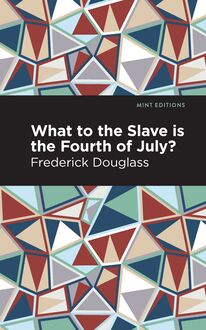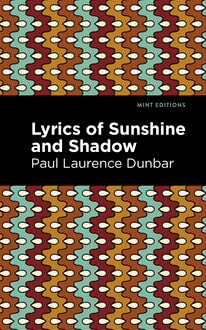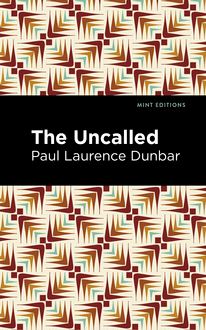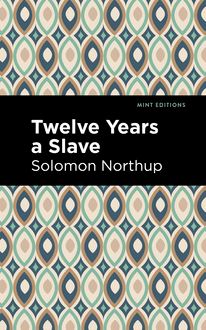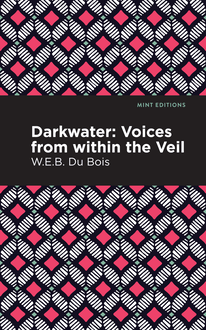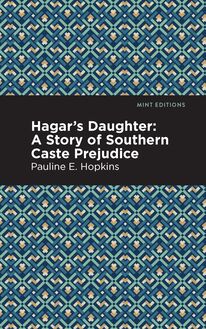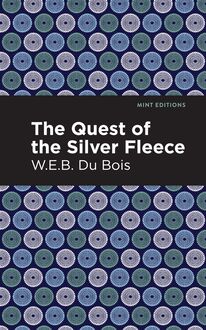-
 Univers
Univers
-
 Ebooks
Ebooks
-
 Livres audio
Livres audio
-
 Presse
Presse
-
 Podcasts
Podcasts
-
 BD
BD
-
 Documents
Documents
-
- Cours
- Révisions
- Ressources pédagogiques
- Sciences de l’éducation
- Manuels scolaires
- Langues
- Travaux de classe
- Annales de BEP
- Etudes supérieures
- Maternelle et primaire
- Fiches de lecture
- Orientation scolaire
- Méthodologie
- Corrigés de devoir
- Annales d’examens et concours
- Annales du bac
- Annales du brevet
- Rapports de stage
La lecture à portée de main
Vous pourrez modifier la taille du texte de cet ouvrage
Découvre YouScribe en t'inscrivant gratuitement
Je m'inscrisDécouvre YouScribe en t'inscrivant gratuitement
Je m'inscrisEn savoir plus
Vous pourrez modifier la taille du texte de cet ouvrage
En savoir plus

Description
Elizabeth Keckley reveals the hardships of slavery and the changing political climate in Washington amongst the country’s most powerful couple, Abraham and Mary Lincoln. Keckley had unprecedented access, giving insight into their state during and after the Civil War.
Elizabeth Keckley was born into slavery and experienced a traumatic upbringing riddled with physical and sexual violence. One attack resulted in the birth of her son, whom she named George. Elizabeth was a gifted seamstress who used her skills to save money to buy her and her son’s freedom. She ventured North and started a career as a dressmaker to influential women in political circles. One of her most notable clients was Mary Todd Lincoln, with whom she developed a close friendship.
Behind the Scenes is a harrowing story of one woman’s unshakable drive. Despite her limiting circumstances, Elizabeth Keckley earned her freedom and became a successful entrepreneur. It’s an inspiring tale that provides a personal account of one of the most volatile times in American history.
With an eye-catching new cover, and professionally typeset manuscript, this edition of Behind the Scenes is both modern and readable.
Sujets
Informations
| Publié par | Mint Editions |
| Date de parution | 26 janvier 2021 |
| Nombre de lectures | 0 |
| EAN13 | 9781513276120 |
| Langue | English |
| Poids de l'ouvrage | 2 Mo |
Informations légales : prix de location à la page 0,0450€. Cette information est donnée uniquement à titre indicatif conformément à la législation en vigueur.
Extrait
Behind the Scenes
Elizabeth Keckley
Behind the Scenes was first published in 1868.
This edition published by Mint Editions 2020.
ISBN 9781513271125 | E-ISBN 9781513276120
Published by Mint Editions ®
minteditionbooks .com
Publishing Director: Jennifer Newens
Project Manager: Micaela Clark
Design & Production: Rachel Lopez Metzger
Typesetting: Westchester Publishing Services
C ONTENTS P REFACE I. W HERE I WAS BORN II. G IRLHOOD AND ITS S ORROWS III. H OW I GAINED MY F REEDOM IV. I N THE F AMILY OF S ENATOR J EFFERSON D AVIS V. M Y I NTRODUCTION TO M RS . L INCOLN VI. W ILLIE L INCOLN ’ S D EATH - BED VII. W ASHINGTON IN 1862–3 VIII. C ANDID O PINIONS IX. B EHIND THE S CENES X. T HE S ECOND I NAUGURATION XI. T HE A SSASSINATION OF P RESIDENT L INCOLN XII. M RS . L INCOLN LEAVES THE W HITE H OUSE XIII. T HE O RIGIN OF THE R IVALRY BETWEEN M R . D OUGLAS AND M R . L INCOLN XIV. O LD F RIENDS XV. T HE S ECRET H ISTORY OF M RS . L INCOLN ’ S W ARDROBE IN N EW Y ORK A PPENDIX —L ETTERS FROM M RS . L INCOLN TO M RS . K ECKLEY
P REFACE
I have often been asked to write my life, as those who know me know that it has been an eventful one. At last I have acceded to the importunities of my friends, and have hastily sketched some of the striking incidents that go to make up my history. My life, so full of romance, may sound like a dream to the matter-of-fact reader, nevertheless everything I have written is strictly true; much has been omitted, but nothing has been exaggerated. In writing as I have done, I am well aware that I have invited criticism; but before the critic judges harshly, let my explanation be carefully read and weighed. If I have portrayed the dark side of slavery, I also have painted the bright side. The good that I have said of human servitude should be thrown into the scales with the evil that I have said of it. I have kind, true-hearted friends in the South as well as in the North, and I would not wound those Southern friends by sweeping condemnation, simply because I was once a slave. They were not so much responsible for the curse under which I was born, as the God of nature and the fathers who framed the Constitution for the United States. The law descended to them, and it was but natural that they should recognize it, since it manifestly was their interest to do so. And yet a wrong was inflicted upon me; a cruel custom deprived me of my liberty, and since I was robbed of my dearest right, I would not have been human had I not rebelled against the robbery. God rules the Universe. I was a feeble instrument in His hands, and through me and the enslaved millions of my race, one of the problems was solved that belongs to the great problem of human destiny; and the solution was developed so gradually that there was no great convulsion of the harmonies of natural laws. A solemn truth was thrown to the surface, and what is better still, it was recognized as a truth by those who give force to moral laws. An act may be wrong, but unless the ruling power recognizes the wrong, it is useless to hope for a correction of it. Principles may be right, but they are not established within an hour. The masses are slow to reason, and each principle, to acquire moral force, must come to us from the fire of the crucible; the fire may inflict unjust punishment, but then it purifies and renders stronger the principle, not in itself, but in the eyes of those who arrogate judgment to themselves. When the war of the Revolution established the independence of the American colonies, an evil was perpetuated, slavery was more firmly established; and since the evil had been planted, it must pass through certain stages before it could be eradicated. In fact, we give but little thought to the plant of evil until it grows to such monstrous proportions that it overshadows important interests; then the efforts to destroy it become earnest. As one of the victims of slavery I drank of the bitter water; but then, since destiny willed it so, and since I aided in bringing a solemn truth to the surface as a truth , perhaps I have no right to complain. Here, as in all things pertaining to life, I can afford to be charitable.
It may be charged that I have written too freely on some questions, especially in regard to Mrs. Lincoln. I do not think so; at least I have been prompted by the purest motive. Mrs. Lincoln, by her own acts, forced herself into notoriety. She stepped beyond the formal lines which hedge about a private life, and invited public criticism. The people have judged her harshly, and no woman was ever more traduced in the public prints of the country. The people knew nothing of the secret history of her transactions, therefore they judged her by what was thrown to the surface. For an act may be wrong judged purely by itself, but when the motive that prompted the act is understood, it is construed differently. I lay it down as an axiom, that only that is criminal in the sight of God where crime is meditated. Mrs. Lincoln may have been imprudent, but since her intentions were good, she should be judged more kindly than she has been. But the world do not know what her intentions were; they have only been made acquainted with her acts without knowing what feeling guided her actions. If the world are to judge her as I have judged her, they must be introduced to the secret history of her transactions. The veil of mystery must be drawn aside; the origin of a fact must be brought to light with the naked fact itself. If I have betrayed confidence in anything I have published, it has been to place Mrs. Lincoln in a better light before the world. A breach of trust—if breach it can be called—of this kind is always excusable. My own character, as well as the character of Mrs. Lincoln, is at stake, since I have been intimately associated with that lady in the most eventful periods of her life. I have been her confidante, and if evil charges are laid at her door, they also must be laid at mine, since I have been a party to all her movements. To defend myself I must defend the lady that I have served. The world have judged Mrs. Lincoln by the facts which float upon the surface, and through her have partially judged me, and the only way to convince them that wrong was not meditated is to explain the motives that actuated us. I have written nothing that can place Mrs. Lincoln in a worse light before the world than the light in which she now stands, therefore the secret history that I publish can do her no harm. I have excluded everything of a personal character from her letters; the extracts introduced only refer to public men, and are such as to throw light upon her unfortunate adventure in New York. These letters were not written for publication, for which reason they are all the more valuable; they are the frank overflowings of the heart, the outcropping of impulse, the key to genuine motives. They prove the motive to have been pure, and if they shall help to stifle the voice of calumny, I am content. I do not forget, before the public journals vilified Mrs. Lincoln, that ladies who moved in the Washington circle in which she moved, freely canvassed her character among themselves. They gloated over many a tale of scandal that grew out of gossip in their own circle. If these ladies, could say everything bad of the wife of the President, why should I not be permitted to lay her secret history bare, especially when that history plainly shows that her life, like all lives, has its good side as well as its bad side! None of us are perfect, for which reason we should heed the voice of charity when it whispers in our ears, “Do not magnify the imperfections of others.” Had Mrs. Lincoln’s acts never become public property, I should not have published to the world the secret chapters of her life. I am not the special champion of the widow of our lamented President; the reader of the pages which follow will discover that I have written with the utmost frankness in regard to her—have exposed her faults as well as given her credit for honest motives. I wish the world to judge her as she is, free from the exaggerations of praise or scandal, since I have been associated with her in so many things that have provoked hostile criticism; and the judgment that the world may pass upon her, I flatter myself, will present my own actions in a better light.
E LIZABETH K ECKLEY
14 Carroll Place, New York,
March 14, 1868
I
W HERE I WAS BORN
My life has been an eventful one. I was born a slave—was the child of slave parents—therefore I came upon the earth free in God-like thought, but fettered in action. My birthplace was Dinwiddie Court-House, in Virginia. My recollections of childhood are distinct, perhaps for the reason that many stirring incidents are associated with that period. I am now on the shady side of forty, and as I sit alone in my room the brain is busy, and a rapidly moving panorama brings scene after scene before me, some pleasant and others sad; and when I thus greet old familiar faces, I often find myself wondering if I am not living the past over again. The visions are so terribly distinct that I almost imagine them to be real. Hour after hour I sit while the scenes are being shifted; and as I gaze upon the panorama of the past, I realize how crowded with incidents my life has been. Every day seems like a romance within itself, and the years grow into ponderous volumes. As I cannot condense, I must omit many strange passages in my history. From such a wilderness of events it is difficult to make a selection, but as I am not writing altogether the history of myself, I will confine my story to the most important incidents which I believe influenced the moulding of my character. As I glance over the crowded sea of the past, these incidents stand forth prominently, the guide-posts of memory. I presume that I must have been four years old when I first began to remember; at least, I cannot now recall anything occurri
-
 Univers
Univers
-
 Ebooks
Ebooks
-
 Livres audio
Livres audio
-
 Presse
Presse
-
 Podcasts
Podcasts
-
 BD
BD
-
 Documents
Documents
-
Jeunesse
-
Littérature
-
Ressources professionnelles
-
Santé et bien-être
-
Savoirs
-
Education
-
Loisirs et hobbies
-
Art, musique et cinéma
-
Actualité et débat de société
-
Jeunesse
-
Littérature
-
Ressources professionnelles
-
Santé et bien-être
-
Savoirs
-
Education
-
Loisirs et hobbies
-
Art, musique et cinéma
-
Actualité et débat de société
-
Actualités
-
Lifestyle
-
Presse jeunesse
-
Presse professionnelle
-
Pratique
-
Presse sportive
-
Presse internationale
-
Culture & Médias
-
Action et Aventures
-
Science-fiction et Fantasy
-
Société
-
Jeunesse
-
Littérature
-
Ressources professionnelles
-
Santé et bien-être
-
Savoirs
-
Education
-
Loisirs et hobbies
-
Art, musique et cinéma
-
Actualité et débat de société
- Cours
- Révisions
- Ressources pédagogiques
- Sciences de l’éducation
- Manuels scolaires
- Langues
- Travaux de classe
- Annales de BEP
- Etudes supérieures
- Maternelle et primaire
- Fiches de lecture
- Orientation scolaire
- Méthodologie
- Corrigés de devoir
- Annales d’examens et concours
- Annales du bac
- Annales du brevet
- Rapports de stage



